
SCANDINAVIAN JOURNAL OF LABORATORY ANIMAL SCIENCE
metrics 2024
Advancing the Science of Animal Welfare
Introduction
SCANDINAVIAN JOURNAL OF LABORATORY ANIMAL SCIENCE, published by the Scandinavian Society of Laboratory Animal Science, serves as a critical resource for researchers and professionals in the fields of veterinary science, animal biology, and biochemistry. Since its inception in 1996, this journal has consistently aimed to advance the understanding and welfare of laboratory animals through rigorous scientific research and innovative methodologies. Although it currently holds a Q4 ranking in several categories, including Animal Science and Zoology, it remains an essential platform for disseminating findings that influence both ethical practices and scientific advancements. The journal has converged its publishing years from 1996 to 2012 and 2014 to 2024, reflecting its commitment to ongoing research discourse. While it does not offer open access, the content within promises to deliver invaluable insights to enhance the quality of laboratory practices. Situated in Denmark, the journal invites contributions that foster a better understanding of the complexities of laboratory animal science, ensuring relevance and significant impact within the global scientific community.
Metrics 2024
 0.17
0.17 0.30
0.30 0.30
0.30 22
22Metrics History
Rank 2024
Scopus
IF (Web Of Science)
JCI (Web Of Science)
Quartile History
Similar Journals
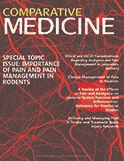
COMPARATIVE MEDICINE
Exploring the intersections of comparative biology and medicine.Comparative Medicine, published by the American Association for Laboratory Animal Science, serves as a vital resource in the fields of veterinary science and biochemistry, focusing on the complexities of laboratory animal research and its implications for human and animal health. Established in 2000 and continuing through 2024, this journal has cultivated a reputation for disseminating innovative research and reviews that enhance understanding of comparative biology and medicine. With a commendable Q3 rank in both Biochemistry, Genetics and Molecular Biology and Medicine, and a notable Q2 rank in Veterinary sciences as of 2023, it stands out in its field. The journal is dedicated to open access, aligning with contemporary trends in scientific communication, and its impact can be appreciated in its Scopus ranks, placing it in the 59th percentile for General Veterinary and the 36th percentile for General Biochemistry, Genetics, and Molecular Biology. Researchers, professionals, and students will find this journal indispensable for staying informed on cutting-edge advancements and fostering cross-disciplinary dialogue in comparative medicine.

Frontiers in Animal Science
Shaping the future of animal research, one study at a time.Frontiers in Animal Science is a pioneering academic journal dedicated to advancing knowledge and innovation in the fields of animal science and zoology. Published by FRONTIERS MEDIA SA in Switzerland, this open-access journal aims to bridge the gap between research and practice by providing a platform for impactful studies and discoveries. With an impressive Q2 classification in animal science and zoology for 2023, it ranks #222 out of 490 journals within the Scopus database, placing it within the 54th percentile of academic journals in its category. Since its inception in 2020, Frontiers in Animal Science has fostered interdisciplinary collaboration and innovation, encouraging researchers, professionals, and students alike to share their work and insights. By facilitating unrestricted access to quality research, this journal plays a crucial role in shaping the future of animal science and enhancing our understanding of animal biology and welfare.

Translational Animal Science
Unlocking Insights for Better Animal CareTranslational Animal Science, published by Oxford University Press Inc, stands as a prominent journal in the fields of Animal Science and Zoology as well as Veterinary Sciences, achieving a commendable Q2 ranking in both categories for 2023. With an E-ISSN of 2573-2102 and transitioning to an Open Access model since 2017, this journal fosters accessibility and dissemination of vital research that bridges the gap between basic animal science and its practical applications. The journal's significant impact factor, where it ranks in the 71st and 65th percentiles respectively for Veterinary and Agricultural and Biological Sciences disciplines, highlights its importance as a resource for emerging trends and innovations in animal research. With submissions accepted until 2024, Translational Animal Science not only contributes to advancing knowledge but also aims to engage a broad audience of researchers, professionals, and students dedicated to improving animal health and welfare. Based in India, the journal serves as an essential platform for the exchange of scientific ideas that facilitate progress within these vital fields.

Porcine Health Management
Advancing swine health through innovative research.Porcine Health Management is an esteemed open-access journal published by BMC, focusing on the critical intersection of veterinary science and animal husbandry with a particular emphasis on swine health. Since its inception in 2015, the journal has established itself as a leading platform for disseminating cutting-edge research, earning a prominent position in the field with a 2023 category ranking of Q1 in Animal Science and Zoology, Food Animals, and Small Animals. With a strong impact factor indicative of its quality and relevance, the journal serves as an essential resource for researchers, practitioners, and students dedicated to advancing knowledge in swine health management. It is hosted in the United Kingdom and operates under transparent open-access guidelines, providing broad accessibility to vital research findings that drive innovation in animal health practices. As the field continues to evolve, Porcine Health Management remains at the forefront, contributing to the welfare and productivity of food animals.
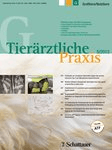
TIERAERZTLICHE PRAXIS AUSGABE GROSSTIERE NUTZTIERE
Innovating veterinary practices for better animal welfare.TIERAERZTLICHE PRAXIS AUSGABE GROSSTIERE NUTZTIERE is a pivotal journal in the field of veterinary science, focusing specifically on large animals and food production animals. Published by GEORG THIEME VERLAG KG, this journal has been a resource for veterinary professionals since its inception in 1996, delivering current research and practical insights to its readership through 2024. Despite its classification in the Q4 quartile for both Food Animals and Veterinary (miscellaneous) categories, the journal provides an essential platform for emerging studies, contributing to the interdisciplinary dialogue around veterinary practices. Researchers and practitioners benefit from the journal’s commitment to advancing knowledge, despite its modest rankings in Scopus where it stands at rank #150 in General Veterinary and #32 in Food Animals. While not currently offering Open Access options, the journals’ significant body of work remains an invaluable asset for those dedicated to enhancing animal health and welfare. TIERAERZTLICHE PRAXIS serves as a cornerstone for academic exploration and practical application in the veterinary field, fostering a deeper understanding of the complexities involved in animal care and management.
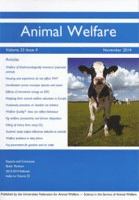
ANIMAL WELFARE
Unraveling the complexities of animal ethics and welfare.ANIMAL WELFARE, published by Cambridge University Press, is a vital academic journal dedicated to advancing our understanding of animal ethics, welfare science, and related practices. With an ISSN of 0962-7286 and an E-ISSN of 2054-1538, the journal offers a platform for researchers and professionals to share significant findings and insights that enhance animal protection and welfare across various settings. Operating from its distinguished location in the United Kingdom, the journal boasts a commendable impact factor and is recognized in several quartile categories in 2023, including Q3 in Animal Science and Zoology, Q3 in Biochemistry, Genetics and Molecular Biology, and Q2 in Veterinary (miscellaneous). With its diverse scope, ANIMAL WELFARE plays a crucial role in influencing policy and practice while fostering multidisciplinary discourse. It is a valuable resource for anyone dedicated to improving the lives of animals and understanding the complexities involved in animal welfare research.
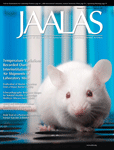
Journal of the American Association for Laboratory Animal Science
Exploring groundbreaking research for animal welfare.The Journal of the American Association for Laboratory Animal Science is a premier peer-reviewed publication dedicated to advancing the field of laboratory animal science. Published by the American Association for Laboratory Animal Science, this journal plays a crucial role in disseminating innovative research and fostering best practices in the care and use of laboratory animals. With an impressive Q1 ranking in the fields of Animal Science and Zoology and a significant Scopus ranking placing it in the 70th percentile among its peers, it stands as an influential resource for researchers, professionals, and students alike. The journal is committed to open access, ensuring that all findings are readily available to the academic community and beyond. By providing a platform for interdisciplinary dialogue and knowledge sharing, the journal contributes to the responsible and ethical advancement of laboratory animal science, which is vital for research integrity and animal welfare. With a publication timeline converging from 2006 to 2024, the Journal continues to evolve, addressing the dynamic challenges faced within the field.
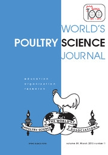
WORLDS POULTRY SCIENCE JOURNAL
Elevating poultry science through impactful research.Worlds Poultry Science Journal, published by Taylor & Francis Ltd, is a premier academic journal in the field of poultry science, recognized for its significant contributions to advancements in animal science and zoology. With an impressive impact factor and a 2023 ranking placing it in the Q1 category for both Agricultural and Biological Sciences, this journal is highly regarded among researchers and professionals. As an authoritative source for innovative research from 1945 to 2024, it serves as an essential platform for the dissemination of knowledge concerning poultry health, nutrition, genetics, and management strategies. While it currently does not offer open access, the journal caters to a global audience, fostering collaboration and advancing scientific understanding within the poultry industry. Located in the United Kingdom, Worlds Poultry Science Journal is positioned at the forefront of poultry research, making it an invaluable resource for students, scholars, and industry experts alike.

WIENER TIERARZTLICHE MONATSSCHRIFT
Innovating veterinary education and professional growth.WIENER TIERARZTLICHE MONATSSCHRIFT is a prominent veterinary journal published by B W K PUBLISHING SOLUTIONS & VERLAG, located in Vienna, Austria. With the ISSN 0043-535X, this journal serves as an essential resource for veterinarians, animal health professionals, and researchers in the field of veterinary science. It aims to disseminate high-quality research articles, reviews, and case studies that encompass a broad spectrum of topics relevant to veterinary medicine, animal welfare, and public health. Although it currently does not offer Open Access options, the journal plays a crucial role in advancing knowledge and fostering dialogue in the increasingly vital area of animal care and management. As a platform for emerging trends and innovative practices, WIENER TIERARZTLICHE MONATSSCHRIFT remains dedicated to enhancing veterinary education and fostering professional development, making it an invaluable asset for anyone engaged in veterinary studies.

Revista MVZ Cordoba
Connecting global insights in Zoology and Veterinary Sciences.Revista MVZ Cordoba, an esteemed publication of UNIV CORDOBA, is a pivotal resource for researchers and practitioners in the fields of Animal Science, Zoology, and Veterinary Medicine. Established as an Open Access journal since 2000, it facilitates widespread accessibility of scholarly articles from Colombia, fostering global collaboration and knowledge dissemination. The journal has demonstrated its commitment to quality, holding Q4 quartile rankings in 2023 across various categories including Animal Science and Zoology, and Aquatic Science. Despite its current challenges in rankings, with percentiles in the lower brackets, it represents an important platform for the advancements in these disciplines, specifically catering to emerging research and insights. The journal's annual publication cycle from 2008 to 2024 ensures that it remains timely and relevant in covering contemporary issues within veterinary science and related areas. For researchers, professionals, and students, Revista MVZ Cordoba stands out as a valuable avenue for the exploration of veterinary sciences within a diverse academic landscape.